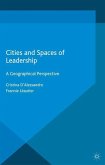
27,99 €
Versandfertig in über 4 Wochen

Gebundenes Buch
A Geographical Perspective
1st ed. 2016
2. März 2016
Palgrave Macmillan / Palgrave Macmillan UK / Springer Palgrave Macmillan
978-1-137-56190-9
| eBook, PDF | 40,95 € |
Ähnliche Artikel

23,99 €
Versandfertig in über 4 Wochen
Broschiertes Buch
18. November 2021

17,99 €
Versandfertig in über 4 Wochen
Broschiertes Buch
19. November 2020

25,99 €
Versandfertig in über 4 Wochen

Broschiertes Buch
29. Juni 2022
Gruppo Editoriale Macro

24,99 €
Versandfertig in über 4 Wochen
Broschiertes Buch
5. Juli 2018
Edizioni Mediterranee

21,99 €
Versandfertig in über 4 Wochen
Broschiertes Buch
23. Auflage
13. September 2002
Salani

16,99 €
Versandfertig in über 4 Wochen

21,99 €
Versandfertig in über 4 Wochen

16,99 €
Versandfertig in 1-2 Wochen

25,99 €
Versandfertig in über 4 Wochen
Broschiertes Buch
25. Juni 2014
Ähnlichkeitssuche: Fact®Finder von OMIKRON
